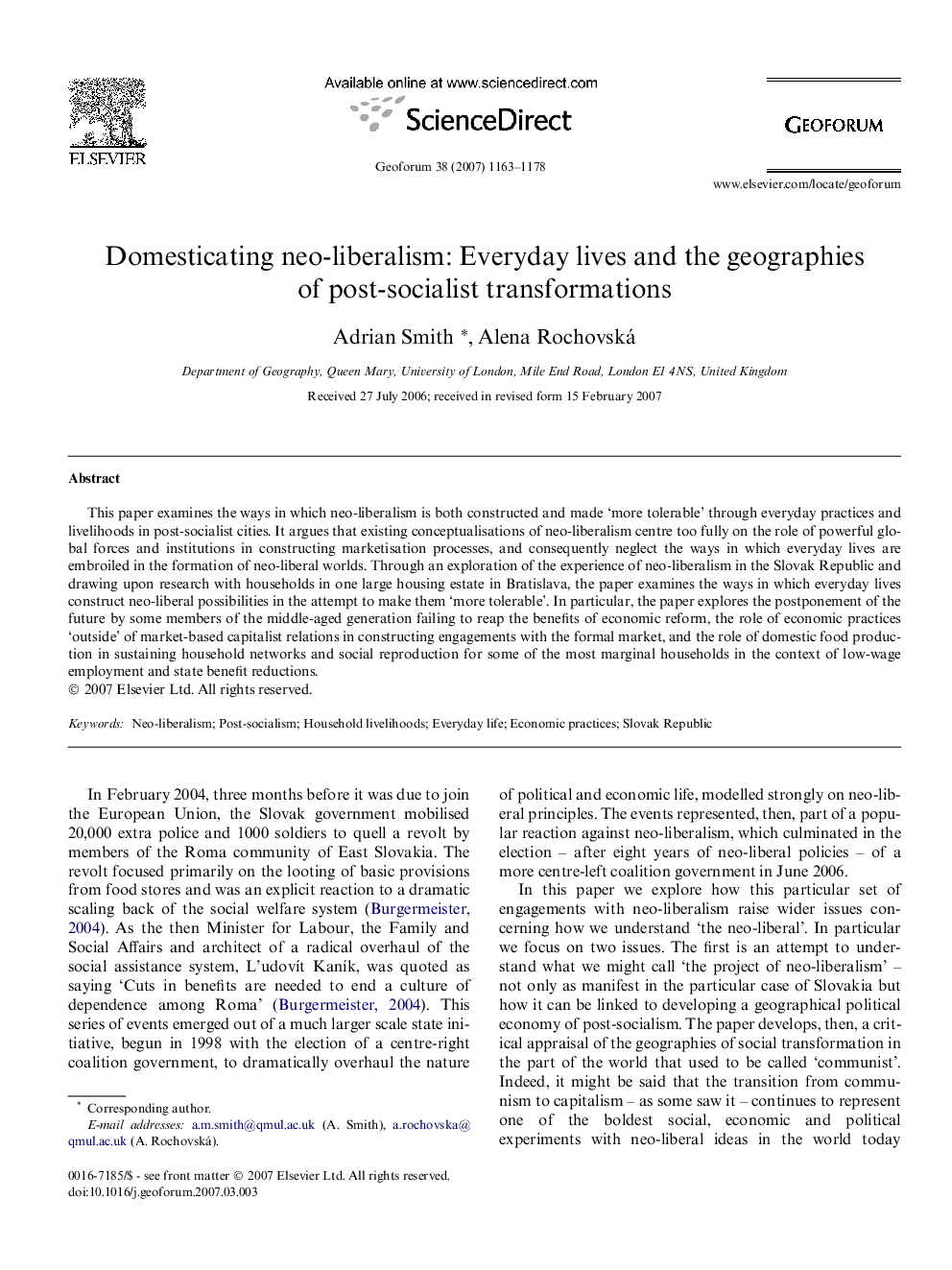| Article ID | Journal | Published Year | Pages | File Type |
|---|---|---|---|---|
| 5074901 | Geoforum | 2007 | 16 Pages |
This paper examines the ways in which neo-liberalism is both constructed and made 'more tolerable' through everyday practices and livelihoods in post-socialist cities. It argues that existing conceptualisations of neo-liberalism centre too fully on the role of powerful global forces and institutions in constructing marketisation processes, and consequently neglect the ways in which everyday lives are embroiled in the formation of neo-liberal worlds. Through an exploration of the experience of neo-liberalism in the Slovak Republic and drawing upon research with households in one large housing estate in Bratislava, the paper examines the ways in which everyday lives construct neo-liberal possibilities in the attempt to make them 'more tolerable'. In particular, the paper explores the postponement of the future by some members of the middle-aged generation failing to reap the benefits of economic reform, the role of economic practices 'outside' of market-based capitalist relations in constructing engagements with the formal market, and the role of domestic food production in sustaining household networks and social reproduction for some of the most marginal households in the context of low-wage employment and state benefit reductions.
